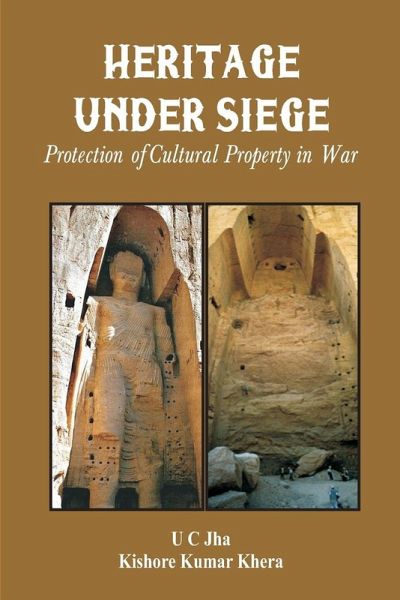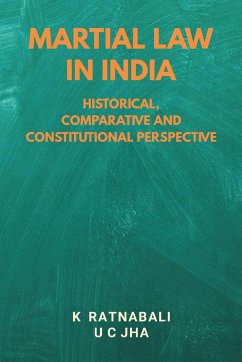
Heritage Under Siege
Protection of Cultural Property in War

PAYBACK Punkte
18 °P sammeln!
In armed conflicts around the world, including the ongoing Israel-Hamas and Russia-Ukraine; the impermissible targeting of cultural properties and religious sites has resulted in their destruction as well as the killing and maiming of innocents. Protecting cultural property during war is crucial for preserving humanity's heritage and identity. International humanitarian law, particularly the 1954 Hague Convention for the Protection of Cultural Property in the Event of Armed Conflict, provides a legal framework to safeguard cultural assets such as monuments, artworks, and religious sites. This ...
In armed conflicts around the world, including the ongoing Israel-Hamas and Russia-Ukraine; the impermissible targeting of cultural properties and religious sites has resulted in their destruction as well as the killing and maiming of innocents. Protecting cultural property during war is crucial for preserving humanity's heritage and identity. International humanitarian law, particularly the 1954 Hague Convention for the Protection of Cultural Property in the Event of Armed Conflict, provides a legal framework to safeguard cultural assets such as monuments, artworks, and religious sites. This convention mandates that all feasible measures be taken to protect cultural property from destruction or theft and requires warring parties to refrain from using such sites for military purposes.Despite these legal protections, cultural property remains vulnerable to intentional destruction, looting, and collateral damage during conflicts. To mitigate these risks, UNESCO and other international bodies work to raise awareness, implement protective measures, and facilitate the return of stolen artefacts. Protecting cultural property is not only about preserving the past but also about fostering peace, understanding, and reconciliation in post-conflict societies. This book takes a 360 view of all the relevant factors on this crucial aspect covering case studies from different parts of the world. The evolution of the legal framework for protecting cultural property is analysed in detail. Summation includes recommendations to conserve the inherited cultural property for future generations.














